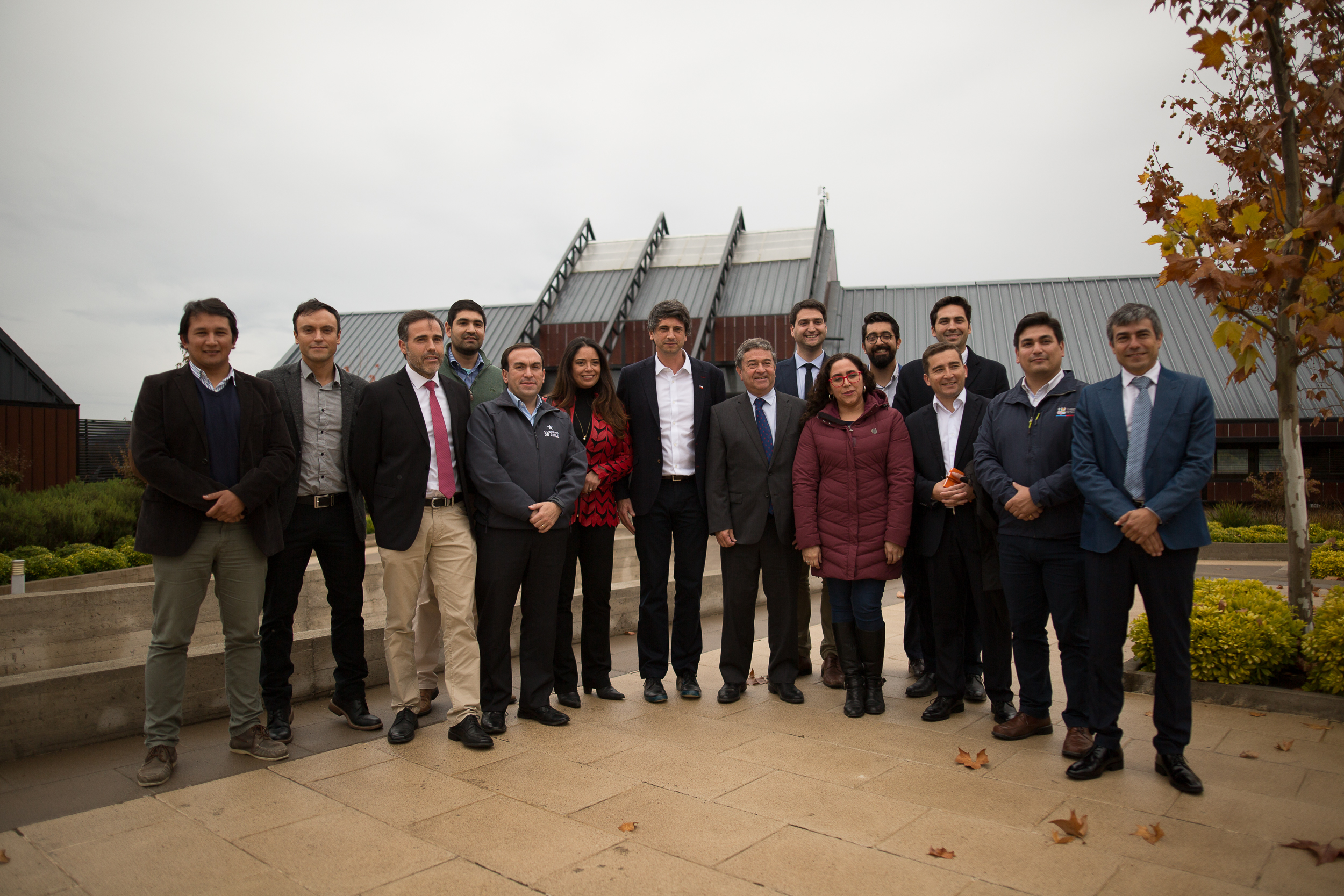- Innovation
- May 7th, 2019
Minister of Science Visits Viña Concha y Toro’s Center for Research and Innovation
As part of the regional visits being carried out by the minister in order to identify opportunities and challenges in relation to technology and innovation, authorities gathered to discuss the progress made in increasing the competitiveness of the wine industry.
Together with government authorities from the Maule Region, minister of science Andrés Couve visited the heart of Viña Concha y Toro’s scientific development, the Center for Research and Innovation (CRI). The event was hosted by CRI researchers, who gave the visitors a tour of the facilities and explained the processes being conducted. Since its foundation in 2014, the center’s objective has been to drive the use of new technologies to increase sustainability in production and introduce “the technological revolution” in winemaking processes.
The visitors (see image) embraced the spirit that inspires the CRI’s work, which is focused on implementing lines of action that help mitigate the effects of climate change, and implementing the vineyard of the future based on molecular biology techniques for vineyard maintenance and strengthening. These processes go hand in hand with innovation and technology.
The minister of science, Andrés Couve, highlighted the major impact of this applied research, technological development and knowledge transfer project for wine industry development in the Maule Region.
“The visit by the minister is a landmark in the convergence of the public and private spheres to strengthen research and development,” said Gerard Casaubon, director of the Center for Research and Innovation. “The center is focused on knowledge as a source of solutions for the challenges and changes being faced by the wine industry. Our work in areas such as climate change adaptation and the industry 4.0 technological revolution is aligned with the main areas of focus of the new ministry, as well as the innovation that is generated by research and development carried out through the molecular biology and bioprocess engineering platforms, at the cutting edge of applied sciences,” he added.
The CRI includes an experimental winery, an international-standard research laboratory and an extension center. All of these areas have a common goal: to promote research, strengthen winemaking processes, and give rise to new technologies and knowledge transfer. The center’s facilities, together with the Rauquén Greenhouse and Lourdes Winery, are located on the Lourdes Estate, which, with a surface area of 1,090 hectares, is the largest vineyard in Chile.
Juan Antonio Coloma, senator for the Maule Region, highlighted the importance of creating spaces to promote innovation. “This center is particularly interesting, and is wonderful for the Maule Region. It is an excellent space for innovation and development. Companies must incorporate innovation and development, and I hope that this will be an example to imitate, because it guarantees quality,” he said
Rosa Roa, Viña Concha y Toro Center for Research and Innovation molecular biology analyst, shares this idea: “We know that our scientific work generates an impact on the competitiveness of the wine industry, and this visit has reaffirmed that we provide a major contribution to science on a national level. As such, we hope that the dissemination of our work will inspire other companies to generate changes.”

From left to right: Rosa Roa, Paulina Arraño and Paola Mora, CRI molecular biology analysts; Andrés Couve, minister of science; Pablo Rodríguez and Mónica Gajardo, CRI sampling technicians; Juan Antonio Coloma, senator for the Maule Region; Raphael Zúñiga, regional director of Chilean economic development agency CORFO; Felipe Donoso, governor of Talca; and Iván Damino, head of the regional government production and industry division.



